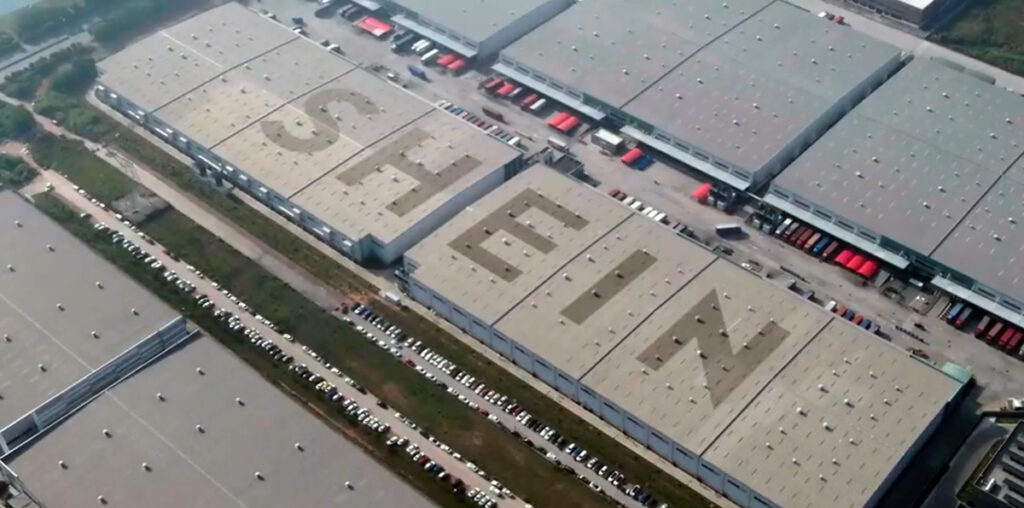Infinite Styles Ecommerce Co. Ltd might not be a household name, but it’s the legal entity behind Shein, the Chinese fast fashion retailer that, together with Temu, has been turning heads and raising eyebrows worldwide. Whether you’re a fan of Shein’s trendy and affordable clothing or critical of its business practices, understanding the company behind the scenes can provide valuable insights.
In this article, we’ll dive deep into Infinite Styles Ecommerce and Shein, exploring its operations, how the company is structured, and the controversies that have put it in the spotlight. Let’s unravel the story behind this influential and very controversial company.
Quick info
| US entity | Irish (EU) entity | |
|---|---|---|
| Company entity | Infinite Styles Ecommerce Co., Ltd. | Infinite Styles Services Co, Ltd |
| Website | https://us.shein.com/ | https://eur.shein.com/ |
| Address | 757 S. Alameda St., Suite 340 Los Angeles, CA 90021 United States of America | 2nd Floor, 1-2 Victoria Buildings, Haddington Road, Dublin 4, Dublin, D04 XN32, Ireland |
What is Infinite Styles Ecommerce Co. Ltd?
SHEIN is a global online fashion and lifestyle retailer with a mission to make the beauty of fashion accessible to all.
SHEIN at a Glance
Infinite Styles Ecommerce Co. Ltd is the company entity in the US and EU that plays a crucial role in the operations of Shein. It’s the entity that Shein is incorporated under. Founded to streamline Shein’s presence, logistics and legal entity.
Operations and Business Model

Shein’s operations and business model are emblematic of the ultra-fast fashion segment, characterized by rapid production cycles, low prices, and extensive digital engagement. Here’s a breakdown based on the information available up to September 2024:
- Ultra-Fast Fashion Model: Shein leverages what’s known as the Large-Scale Automated Test and Reorder (LATR) model. This involves adding thousands of new items daily, far surpassing traditional fashion retailers in terms of the frequency of new inventory. This model allows Shein to test market reactions to new designs quickly, producing items in small batches initially, and scaling up production based on demand.
- Global Operations: Shein is headquartered in Singapore but operates globally, with key operational centers in the U.S., Brazil, Ireland, and China. This global presence allows for localized marketing and logistics, which is crucial for an e-commerce model that thrives on quick delivery and responsiveness to regional fashion trends.
- Digital and Data-Driven: Shein’s business heavily relies on data analytics. By tracking user behavior on its platform and beyond (like trends from Instagram or Etsy), Shein predicts what will sell. This data-driven approach minimizes risk by ensuring that production is closely aligned with consumer demand.
- Pricing and Production: The average unit price of Shein’s garments is notably low, around $7.90, which is made possible by producing in regions with lower labor costs and using materials like polyester, which is cheaper but environmentally controversial due to its contribution to microplastic pollution.
- Marketing Strategy: Shein employs a robust marketing strategy that includes influencer partnerships, social media engagement, and even print advertising. They encourage user-generated content like fashion hauls, which not only serves as free advertising but also builds a community around the brand.
- Revenue Streams: Beyond direct sales, Shein might explore or already be exploring additional revenue streams like subscription models for early access to new collections, premium services, or even branching into other lifestyle products, though specifics on these aren’t detailed in the provided information.
- Environmental and Ethical Concerns: Critics have pointed out the environmental impact of Shein’s operations, from the use of non-biodegradable materials like polyester to the sheer volume of items shipped annually, contributing significantly to carbon emissions. Labor practices have also been under scrutiny, with reports of low wages and long working hours.
- Financial Performance: Shein has shown remarkable growth, with sales surpassing $32 billion in a year, indicating a 40% year-over-year increase, and net profits doubling to $1.6 billion, showcasing not just growth in revenue but also in profitability.
- Future Ambitions: Shein aims for $60 billion in annual revenue by 2025, which, given their average product price, translates to an enormous volume of sales, highlighting their aggressive expansion strategy.
Shein’s model, while incredibly successful in terms of growth and consumer appeal, also brings to light significant discussions around sustainability, labor rights, and the broader implications of fast fashion on both the environment and society. This model thrives on constant innovation in product design, rapid production, and an acute understanding of consumer behavior through digital means, making Shein a case study in modern e-commerce and fashion retail.
The Role of Infinite Styles Ecommerce in Shein’s Success
Infinite Styles Ecommerce has been instrumental in Shein’s meteoric rise. The company’s innovative approach to logistics and supply chain management has allowed Shein to offer a wide range of fashion items at affordable prices. Additionally, Infinite Styles Ecommerce has played a key role in implementing Shein’s marketing strategies, utilizing data analytics to personalize customer experiences and drive engagement. This synergy between logistics and marketing has been a cornerstone of Shein’s popularity.
Controversies and Criticisms

Despite its success, Shein have not been without controversy. Critics have raised concerns about labor practices, environmental impact, and intellectual property issues. Reports of poor working conditions in factories and the environmental toll of fast fashion have sparked debates about the ethics of Shein’s business model. On the other hand, supporters argue that Shein provides affordable fashion options and democratizes access to trendy clothing. This section will delve into these controversies, presenting a balanced view of the praise and criticism surrounding the company.
Legal and Regulatory Aspects
Infinite Styles Ecommerce operates within a complex legal and regulatory framework. As a US and EU-based entity, it must comply with various EU, federal and state regulations, including labor laws, consumer protection standards, and environmental guidelines. Additionally, the company has faced legal challenges, such as lawsuits related to intellectual property and trade practices. Understanding these legal aspects provides a clearer picture of the operational landscape in which Infinite Styles Ecommerce functions.
Future Prospects and Industry Impact
Looking ahead, Infinite Styles Ecommerce is poised to continue its pivotal role in Shein’s growth. As the fast fashion industry evolves, the company will need to adapt to changing consumer preferences and regulatory demands. This section will explore potential future developments, including shifts towards more sustainable practices and innovations in digital commerce. By staying at the forefront of industry trends, Infinite Styles Ecommerce can maintain its competitive edge and influence the broader fashion landscape.
Sources









